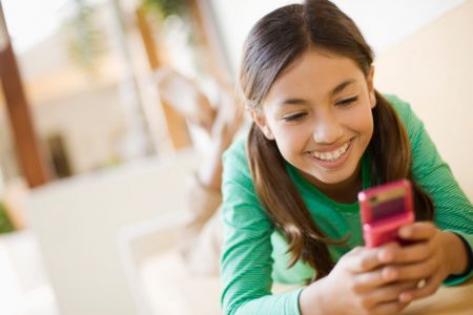A panel of Aussie teenagers was recently invited to give their views on the digital world they inhabit at the World Congress on Family Law and Children’s Rights held in Sydney last month.
Here’s some highlights from the discussion, moderated by Michael Carr-Gregg.
Sexting: Teen are as confused as adults about the laws that are in place. When asked whether it should happen, the consensus seemed to be that “it depends” – because not ever case of sexting is a violation. “The law is unfair and needs to be altered,” said one panelist, but they also seemed to struggle with the age factor. One said that children need to be held accountable for their actions too — but the panelists agreed that children need education about the consequences, and “education is better than prosecution.”
Inappropriate content: When asked about whether pages depicting violence, hate, misogyny etc. should be taken down, one student said, “Nobody’s forcing you to look at or like that page. You can block it too, so that you never have to look at it if you don’t want to.” Another said, “Free speech is important,” adding that it’s better to allow people to “express their displeasure” with an offensive page than to require a service to delete it. A third panelist said that, if it promotes violence, it should be taken down, “but people say awful things to each other in person, and [online] is just another place where that happens.”
They’re self-regulating. They were acutely aware of the need to have digital media reflect their lives. One panelist referred to the “Great Friend Deletion of 2010” in which he ‘unfriended’ people he hadn’t met – but it still left him with 300 friends! Another has her privacy settings set as private/friends only. But one panelist called on parents to help their kids strike a balance between online and offline. He made an important qualification that if parents go overboard and take social media away altogether, “you can become a social outcast and get bullied. That’s a concern.”
Great advice for parents: The students said their generation will “go online whether you say to or not and will do what they want,” so “teaching us why or why not is better than just saying no. You can’t take our technology away without a good reason.” But, hey, said one panelist, “it’s not bad online. We go online to talk about what we had for dinner half the time. Bad stuff happens, but that’s not what social media’s all about. People talk badly about others offline too — this is just another medium, and people should get used to that.” Another panelist agreed: “People are doing things on the net that they do in offline life — it’s the same thing. People need to be more educated before they pass judgment on social media.”
Of parental monitoring. There seemed to be acceptance of this, but not of secret monitoring. Panelists seem to agree that they should be notified by their parents if monitoring was going to happen.
Of “digital citizenship”: Not much enthusiasm for this concept. “You’re not a separate person online,” said one student suggesting that the term suggests something different from “citizenship.”
Socially very mobile: Like other young people around the world, Australian teens seem to use social media mostly on their phones and devices of similar size and portability — whether it’s Facebook or Kik Messenger (the No. 1 texting app it appears). Remember how we’d pass notes in class? Texting — and Kik specifically — is the new note-passing, it seems.
A minimum age? Yes, the panelists said. The minimum age for Facebook and all social media should be 13, because otherwise kids would grow up too fast, one said, suggesting that 12-year-olds shouldn’t feel pressure to “wear what 18-year-olds wear and go clubbing.” Another agreed, saying U13s “can be really irritating” to have around in social media, and they shouldn’t be exposed to “inappropriate” photos.


















__small.png)










